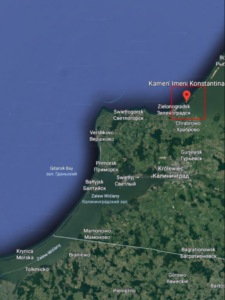On 12 March, the British Prime Minister Theresa May issued an ultimatum that the Russian government explain how the Novichok combat nerve agent, which has been produced in Russia since the 1980s, came to be used on 4 March in Salisbury against Sergey Skripal (a British citizen and a former GRU colonel convicted in Russia for collaborating with British intelligence) and his daughter Yulia – writes Witold Rodkiewicz, analyst at OSW.
Since Russia ignored the British ultimatum, Prime Minister May announced on 14 March that the United Kingdom would make a number of retaliatory moves. London decided to expel from the United Kingdom 23 Russian diplomats which it accuses of espionage, and to suspend official top level bilateral contacts with Russia. It also announced that members of the government and the royal family would boycott the FIFA World Cup in Russia and that secret actions in the area of security would be taken (without specifying precisely what kind of actions these would be). It was further announced that: a British version of the so-called Magnitsky Act imposing sanctions on Russian officials would be passed, and that stricter regulations combating hostile activity against the United Kingdom would be adopted (including stricter border checks and control of foreigners’ financial assets). Furthermore, the United Kingdom will initiate consultations at the UN Security Council and also an investigation as part of the Organisation for the Prohibition of Chemical Weapons.
On 13 March, the US president, Donald Trump, backed the British demand for ‘clear answers’ from the Russian government and agreed that those responsible for the attack should suffer the consequences. In first responses, a number of governments of NATO and EU member states and representatives of the European Commission in general expressed their support for the United Kingdom and condemned the attack. However, they did not criticise Russia openly; nor did they promise to support any potential sanctions. In turn, Britain’s demands for an explanation from Russia have been backed by the North Atlantic Council and the German chancellor, Angela Merkel.
The Russian government firmly rejected Britain’s accusations, branding them as ‘political provocation’. The Russian Ministry of Foreign Affairs refused to give any explanations until samples of the substance used against Skripal were provided to the Russian authorities and until the British government formally launched clarification procedures on the basis of the Chemical Weapons Convention, insisting that an independent analysis of the substance used must be conducted with the assistance of the Technical Secretariat established under this convention. Russian diplomacy at the same time announced that Russia would retaliate against any possible British sanctions. In particular, the Embassy of the Russian Federation in London warned the British side against launching cyber attacks, and the spokeswoman of the Ministry of Foreign Affairs said that a possible cancellation of RT television’s licence in the United Kingdom will result in the cancellations of the licences of all British media present in Russia. She also claimed that issuing an ultimatum to Russia, a nuclear power, was inappropriate, making reference to the demonstration of Russia’s nuclear strength that was part of Vladimir Putin’s speech on 1 March this year. The state-controlled Russian media began suggesting that Skripal had been poisoned by the British secret services to ‘incite Russophobia’ and disrupt the FIFA World Cup in Russia. On the other hand, these media outlets suggested that Skripal is a traitor had deserved the punishment, and that the United Kingdom was not a safe place for Russia’s enemies.
Commentary
The arguments that support the suggestion that the Russian state was involved in the chemical attack in the United Kingdom include: the kind of the substance used, the centralised and authoritarian character of the Russian government system, and the proven fact that the Russian state already used another deadly substance (polonium) to kill the former FSB agent Alexander Litvinenko in the United Kingdom in 2006. The ostentatious manner in which the attempt to murder Skripal was made indicates that the Kremlin’s main objective was to provoke a crisis in relations with the United Kingdom and to obtain an excuse for further aggressive moves. The Kremlin could not have been unaware of the fact that another action taken to liquidate a British citizen in the United Kingdom, especially with the use of a chemical weapon, while also endangering other people, was bound to lead to retaliation from the British government. In this context, this is a demonstration to the West that the Kremlin is ready to make aggressive moves in the West (including terrorist attacks) and to further escalate these. This demonstration is probably intended to perform a preventive function, i.e. to discourage the West (especially the United States) from taking possible actions that would have the character of interfering with Russia’s domestic affairs in the context of the upcoming presidential election. The elite in the Kremlin fears that Washington – in response to the Russian interference with the US presidential election in 2016 – will take retaliatory cybernetic and information measures to challenge the reliability or upset the process of the election in Russia, for example, by fomenting or inspiring a boycott of the election or provoking post-election protests. On the other hand, this action is aimed at reinforcing the message included in the aggressive speech given by President Putin on 1 March who, in threatening the West with the Russian military potential, was demanding that the West begin negotiations with Moscow concerning a new international security system.








